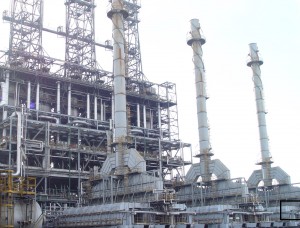Avoiding SIS fired heater trips is always on the mind of operators. Whether for heating, thermal cracking or other process operations, fired heaters can present significant safety risks. While in any state, interlock or “trip” conditions are designed so that a safe state is initiated when unsafe conditions are detected. Example interlocks include loss of flame, loss of combustion air, high or low fuel pressure.
Ideally, the operator needs a clear indication of what exactly caused a trip. This saves many hours of troubleshooting. Strategies such as burner management sequence (BMS) systems and related instrumentation continuously keep the process under control and allows the operator to manually move the process to a safe operational state before SIS trip actions are taken.
Unfortunately, nothing is ideal in a 24/7 process environment, which is why several of the refinery operators attending the I&E training at RefComm Galveston on May 3 noted that SIS heater trips are a big concern. In many cases these trips occurred because maximum throughputs were exceeded, while in other cases, minimum throughputs were detected, instigating a heater trip. It was noted that other important equipment assets, such as critical pumps should have low pressure suction trips installed for minimum flow protection situations.
Another important area that was noted to be concerned with in refinery operations involved heater skin temperature limits. While infrared scanner systems are now widely in use, their accuracy is only as good as the operator’s experience in estimating the temperature from the scanner’s image, allowing for a 200 degree margin of error (plus or minus 200 degrees). Methodologies for obtaining better skin temperature readings were discussed in further detail among the delegates.
Related articles
Role of fired heater safety systems
Amec Foster Wheeler Fired Heaters
CB&I Delayed Coker Heater Technology
One response to “Avoiding Trips in Coker Fired Heaters”
Leave a Reply
You must be logged in to post a comment.








Many companies install Safety Instrumented Systems but neglect the reliability studies to ensure the system will avoid spurious trips and the associated loss of production. Both safety and reliability considerations should be taken into account for any process control systems to prevent personnel, environmental, and financial loss for the owner/operator. Impulse Controls can help with the entire safety system lifecycle. http://www.impulsecontrols.com